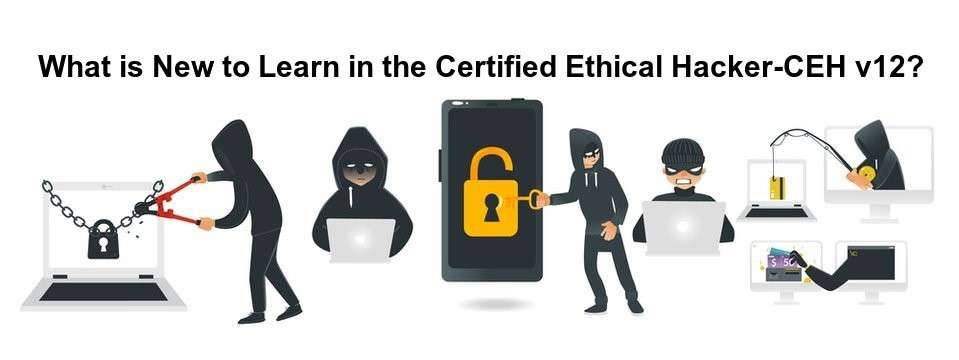
What is Ethical Hacking?
A certified ethical hacker (CEH) is a credentialed specialist in the field of information and communication technology (ICT) who specializes in lawfully uncovering security weaknesses from the perspective of a hacker. This type of expert is known as a certified ethical hacker (CEH). With the goal of promoting the concept of ethical hacking as a self-regulating profession that must adhere to stringent requirements, the Council for Ethical Hacking (CEH) has developed a certification that does not favor any one vendor.
CEH certifications are acknowledged by the American National Standards Institute (ANSI), a non-profit, private organization that supervises the development of voluntary standards in the United States. ANSI is responsible for overseeing the production of voluntary standards in the United States. Before being eligible to take the CEH exam, a candidate is required to have worked in an information security-related field for a minimum of two years. Applicants who can demonstrate that they have a good understanding of fundamental IT principles may be excluded from taking a course offered by the EC-Council. This exemption applies only if the applicants have considerable expertise in networking or IT operations.
Qualifications and prerequisites
Those who have completed their degree programme and received a passing grade are eligible to take the CEH Certification Exam. The CEH Certification Exam is open to anybody who is interested in pursuing a career as an ethical hacker, and it is offered by the EC-Council. The syllabus for the test includes topics such as hacking methods and countermeasures, security principles, and risk assessment. Because the examination is proctored and may be completed whenever is most convenient for you, this option is quite practical. To be eligible to take the examination, prospective students need to be at least 18 years old and in possession of a current photo identification card.
After completing an application, if a candidate chooses to take the CEH Certification Exam, they are required to do so by paying a fee in order to do so. There is a payment of $250 that has to be paid in order to become a certified ethical hacker. This fee may be paid for using any major credit card or through PayPal. The registration for the test is not considered complete until the appropriate cost has been paid.
Preparation and training
It is very necessary to study for the CEH certification exam if you want to establish a reputation for being an ethical hacker. Candidates for positions as ethical hackers are expected to demonstrate a strong foundation in a variety of topics, including network and application security, cloud computing, encryption, and malware research. Aspiring ethical hackers have access to a variety of resources, including books, videos, and both offline and online materials. Because there is a lot of material to go over on this test, you should make sure to study and practice on the material beforehand. You might potentially improve your performance on the examination by using several online preparation materials, such as the sample examinations and the EC Council website.
Tsaaro’s CEH (v12) – Certified Ethical Hacker Training
The Certified Ethical Hacker (CEH) Certification is among the various Cyber Security Certifications that are available via Tsaaro Academy. This certification is the one that covers the greatest ground. Obtaining this internationally recognised certification proves that you have the knowledge and practical experience necessary to administer and audit a secure network. This certification is recognised all over the world.
Completing the C|EH® training program’s twenty modules, which cover a broad variety of technologies, tactics, and procedures, can provide aspiring ethical hackers with the core skills they’ll need to prosper in the cybersecurity industry. These courses cover a variety of topics, including: The C|EH®12 continues to get fresh operating system (OS) updates, exploits, tools, and strategies with each subsequent update. It is often delivered in the form of a training programme that lasts for a total of five days. The training programme includes both theoretical and practical instruction of the concepts to be learned, with equal time allotted on our cyber range for the two types of instruction. Every tactic that is discussed in the course is backed up with practical exercises that are carried out in a mock setting utilizing genuine targets, real tools, and real vulnerable systems. Each participant will have multiple opportunities to obtain hands-on experience with the topic at hand thanks to our cutting-edge laboratory facilities, which will be provided by our organization.
This course on ethical hacking is beneficial for professionals who work in computer support and information technology, such as network security officers, site administrators, IS/IT experts and analysts, IS/IT auditors, IT operations managers, IT security officers, and network specialists.
Conclusion
Tsaaro Academy has been acknowledged as an Official Training Partner by the International Association of Privacy Professionals (IAPP). The teachers at Tsaaro Academy have authentic PDPA auditing experience and are approved by the International Association of Privacy Professionals (IAPP) to teach the Certified Information Privacy Professional – Electronic (CIPP/E) course. In addition, the organization as a whole has educated thousands of individuals on the Personal Data Protection Act and how it should be complied with.
On behalf of Tsaaro Academy, our trainers have been keeping themselves busy by conducting real-world GDPR audits of companies based in India. Compliance with the General Data Protection Regulation, the Personal Data Protection Bill, and the California Consumer Privacy Act has been taught to more than a hundred individuals by the team.
